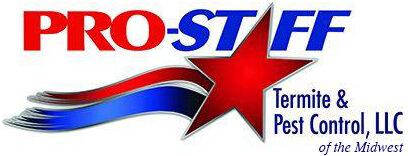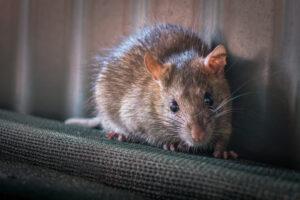Mice are warm-blooded mammals that are not as content living outdoors when winter sets in. Pro-Staff, a company that offers Ankeny rodent control services, receives hundreds of calls on winter mice home invasions and wishes to share with you information on the habits of mice during cold winter months.
How mice adapt in winter
Mice generally hunker down in nests beneath the snow and can live quite comfortably unless it is extremely cold. In milder winter weather, they scurry around outside during the day and actively seek out tiny bits of food. During extreme cold, mice enter a state of torpor, conserving energy and eating very little. In either case, given the option of a dry, climate-controlled home with plenty of readily available food, mice have learned to take advantage of your home.
How mice enter the home
Mice are able to contort through a hole the size of a nickel or larger. These holes might exist where a wire enters from outside the home, where the dryer vents, through the doorway under a more poorly fitted door, and under the sink where pipes protrude.
How to prevent mice from entering
You can keep mice from entering the home with several small repairs or fixes. Here are a few:
- Weatherproof by adding a door sweep to exterior doors.
- Add screens to any vents and soffits.
- Seal cracks around pipes and dryer vents.
- Fill small holes in the floor with steel wool.
- Ventilate attics and crawl spaces, and ensure these areas are dry.
- Check weatherstripping in the basement and along the foundation. Repair crumbling caulking or damaged weatherstripping.
- Elevate firewood at least 6” and store it at least 20’ from your home’s foundation.
- Keep pet food out only long enough for your pets to eat. Once they leave the bowl, pick up the food and store it in an airtight container.
- Dispose of garbage outside far from your home.
The damage mice cause
Mice carry bacteria and parasites, and they contaminate food and food surfaces. As they chew, their saliva has been known to trigger asthma attacks. When they enter your warm home, they are likely to live as they would in the wild, building a nest and bearing young in the warmth of your home. They work arduously, chewing through materials to build quality nests. Unfortunately, they tend to be valuable materials, such as clothing, wiring (which is warm for them when a current is running through it), boxes, and towels.
Mice can climb up drawers onto counters and chew through bags of bread or candy. Be sure to close pantry and cabinet doors to deter mice from eating holes in every bag of food you own. Store food in airtight containers or the refrigerator if you see any evidence of mice in your home.
Keep your home mouse-free with these tips. If you hear scratching and scurrying behind your walls or find holes in clothing or food containers, call Ankney rodent control Pro-Staff at 515 279-7378.

